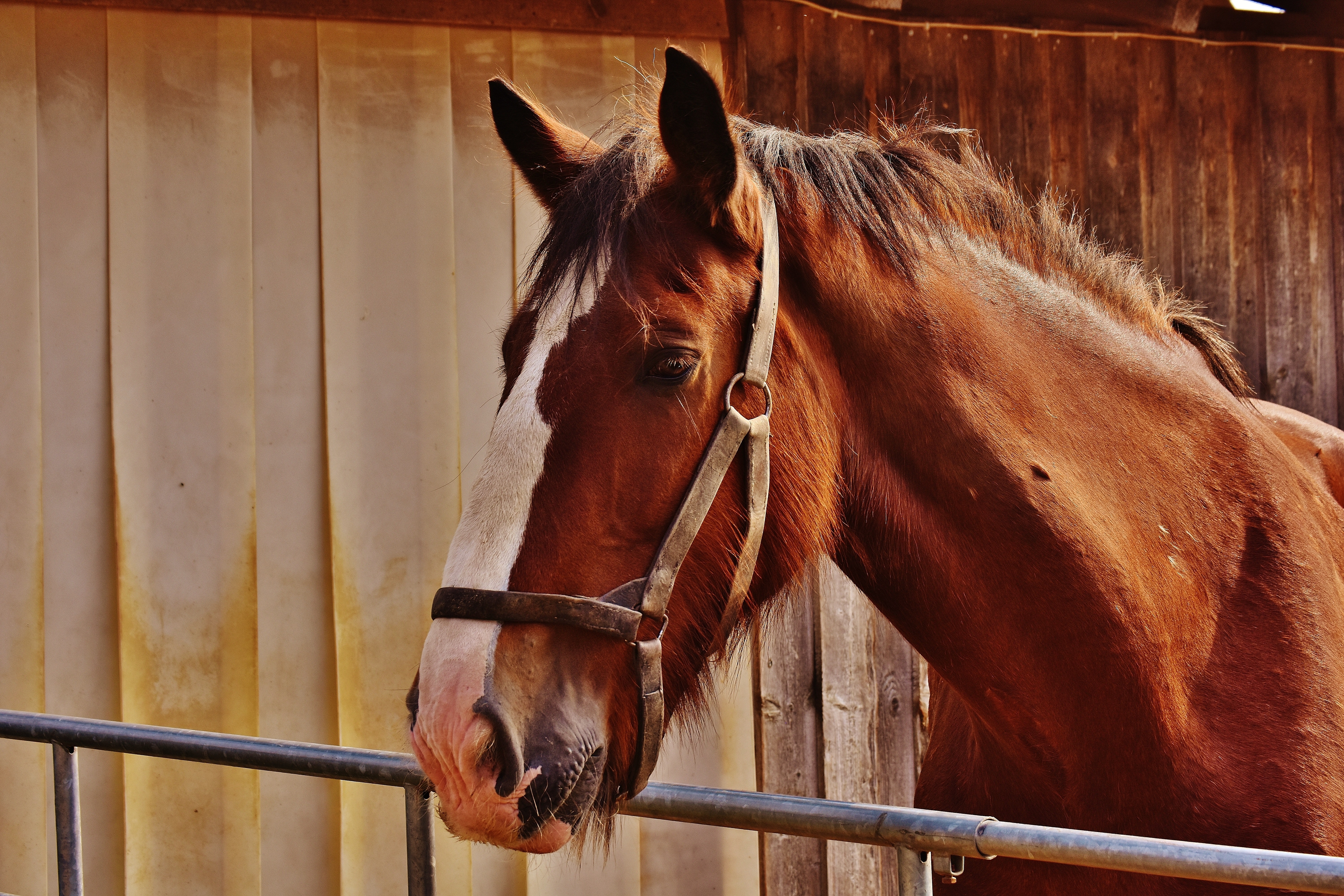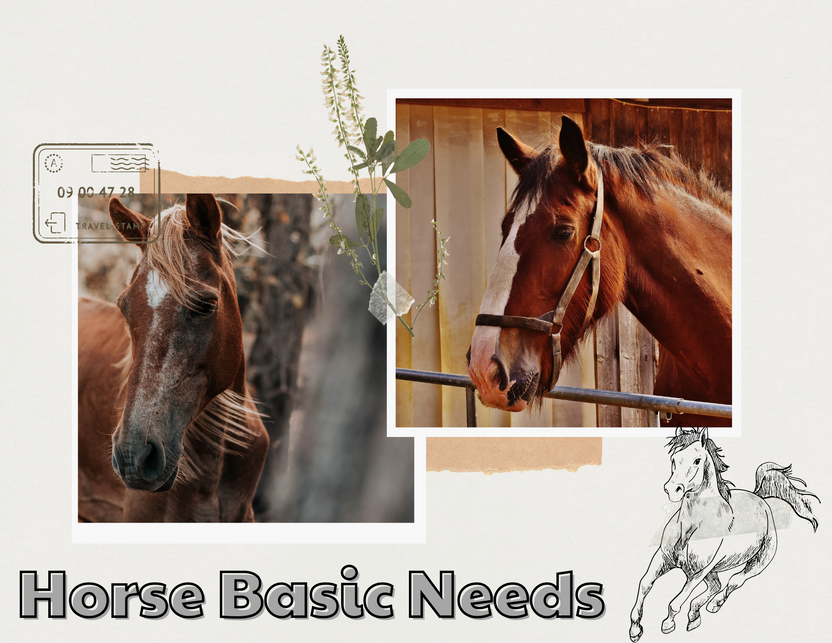Horse Basic Needs
Posted by Evelyn Gelbero on 3rd Dec 2021
Here are the basic needs for a horse:
1.A nice pasture without major hazards such as holes, loose wires, or other dangers.
2.Proper fencing to keep the horse within your designated property.
3.A solid amount of grass or a similar amount of hay for the horse to graze.
4.Shelter from natural hazards.
5.Love and attention.
These are the five basic primary factors that contribute to an all round happy horse and, importantly, a healthy one!

Basic Equipment Needed For Horses
It is crucial you have the necessary equipment when caring for a horse. Here is a comprehensive list of what you will need to properly care for your new horse!
1.Feeding equipment: feed tub, water trough, water heater.
2.Emergency care equipment: horse vetwraps, first-aid kit, stethoscope, etc.
3.Barn and pasture maintenance: wheelbarrow, pitch fork, etc.
4.Grooming equipment: lead ropes, hoof picks, body brush, halter leather, combs, repellent.
5.Riding equipment: saddle with cinch / girth, blanket or pad for under saddle, helmet, bridle, safety stirrups or boots
Horse Health Information You Need To Keep Track Of
Like humans, horses require an appropriate eating plan to help maintain their health, physique, and weight. Before taking care of equines, it’s important to know the health threats and risks that your equine may potentially encounter. Thus, here are the most common health conditions in horses:
1.Gastric Ulcers: This condition is similar to that of humans, where painful, open sores invade the horse’s stomach lining, affecting your equine’s appetite, behavior, appearance, and riding experience.
To prevent this condition, feed your horse regularly and avoid exposing them to psychological stress. You can also incorporate probiotics for horses for improved gut health into their diet.
2.Arthritis: Also known as the degenerative joint diseases (DJD) in animals, this condition mainly impacts your horse’s joint tissues and cartilage. They happen because of wear and tear. However, you can prevent them from happening earlier through:
Maintaining your equine’s healthy weight
Allowing warm-up and cool down before activities
Normal pulse rate is 28 to 45 per minute.
Normal respiration rate is 8 to 20 breaths per minute.
Normal temperature is around 98.5 F to 101 F, or, in celsius, 36.9 C to 38.3 C.
It is not fundamentally necessary you check these health values, but it is very encouraged as knowing this information can tell you whether your horse is feeling ill and may assist your veterinarian in healing your horse friend.
Horse Grooming Basics
Learning to groom your horse is an important and often exciting trial (it’s not always easy). This is one of the activities where you can build an ever-lasting loving bond with your horse, and it also gives you time to check for any injuries or irregularities.
Make sure you have the proper supplies for horse grooming which we previously mentioned, and get your horse in a comfortable position where it won’t be able to run off (depending on how comfortable you are with the horse). Now, we are not going to go into too much detail on the step by step directions as that is best explained in youtube videos, but here are the important tasks you need to do to properly groom your horse.
Clean Your Horse’s Hooves
Comb Out Tangles
Use Body Brush To Get Rid Of Dirt
Clean Ears, Eyes, Muzzle, and Dock Area

